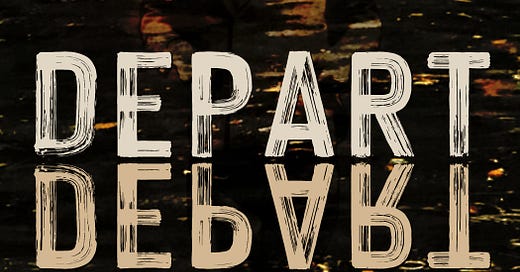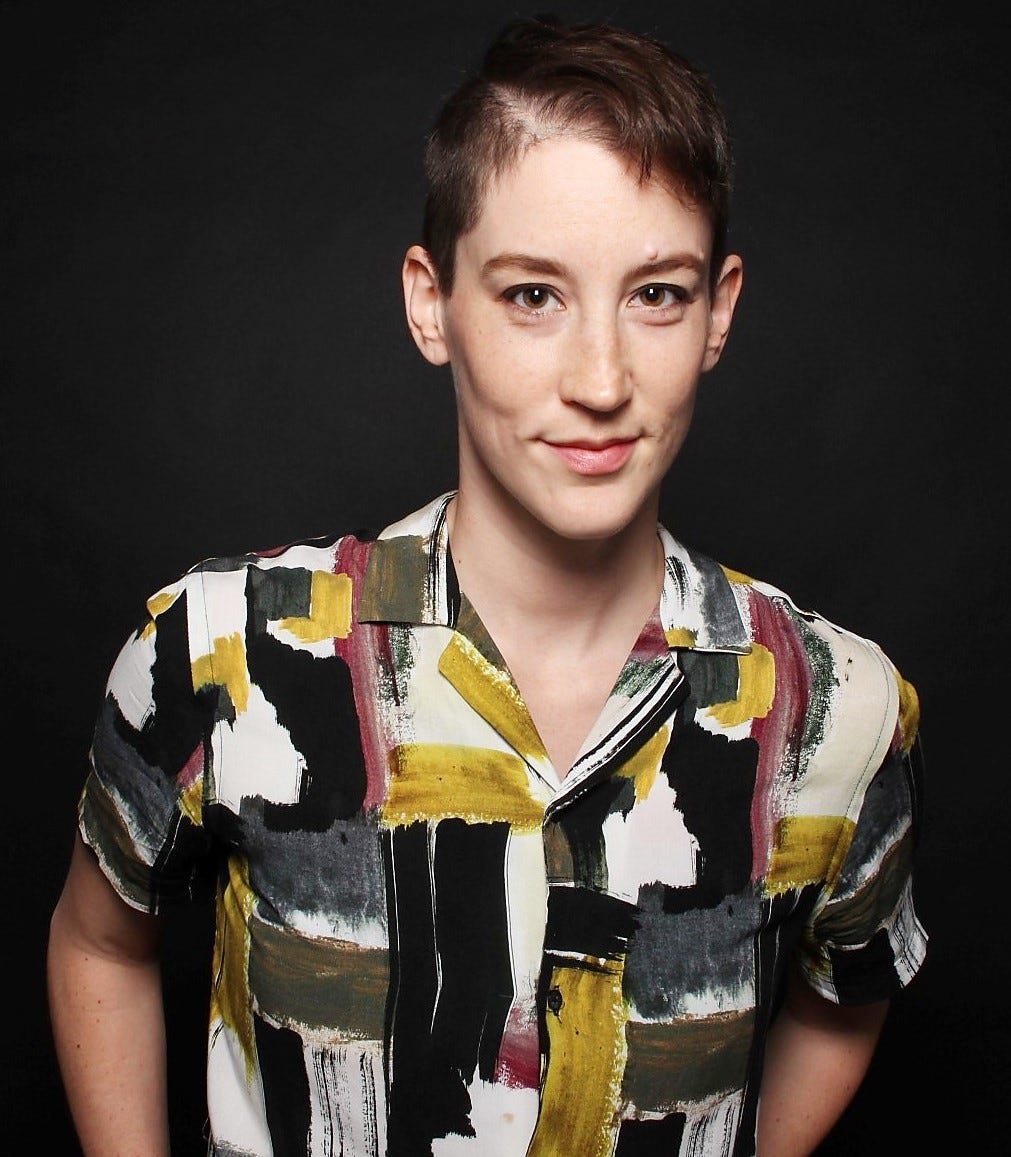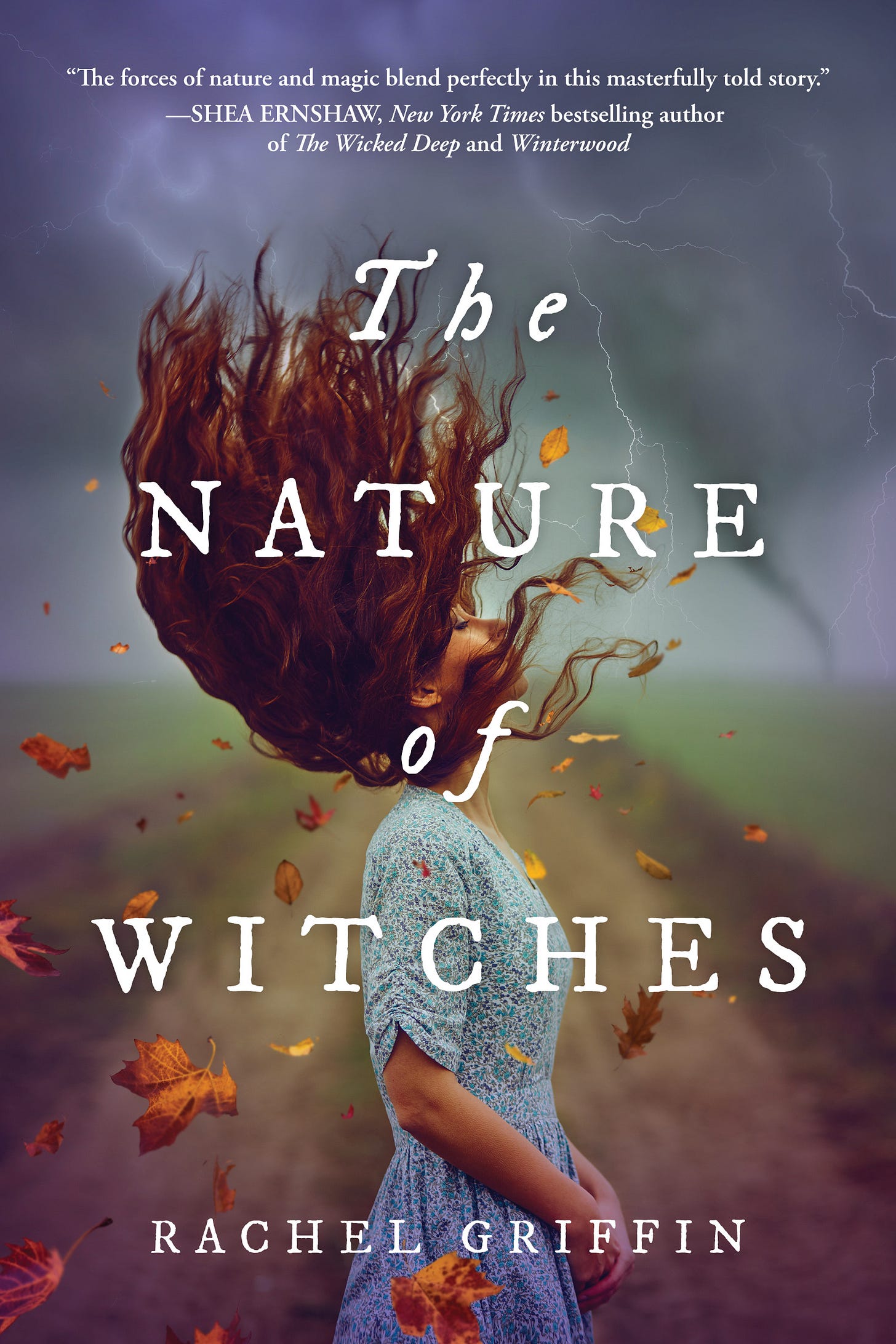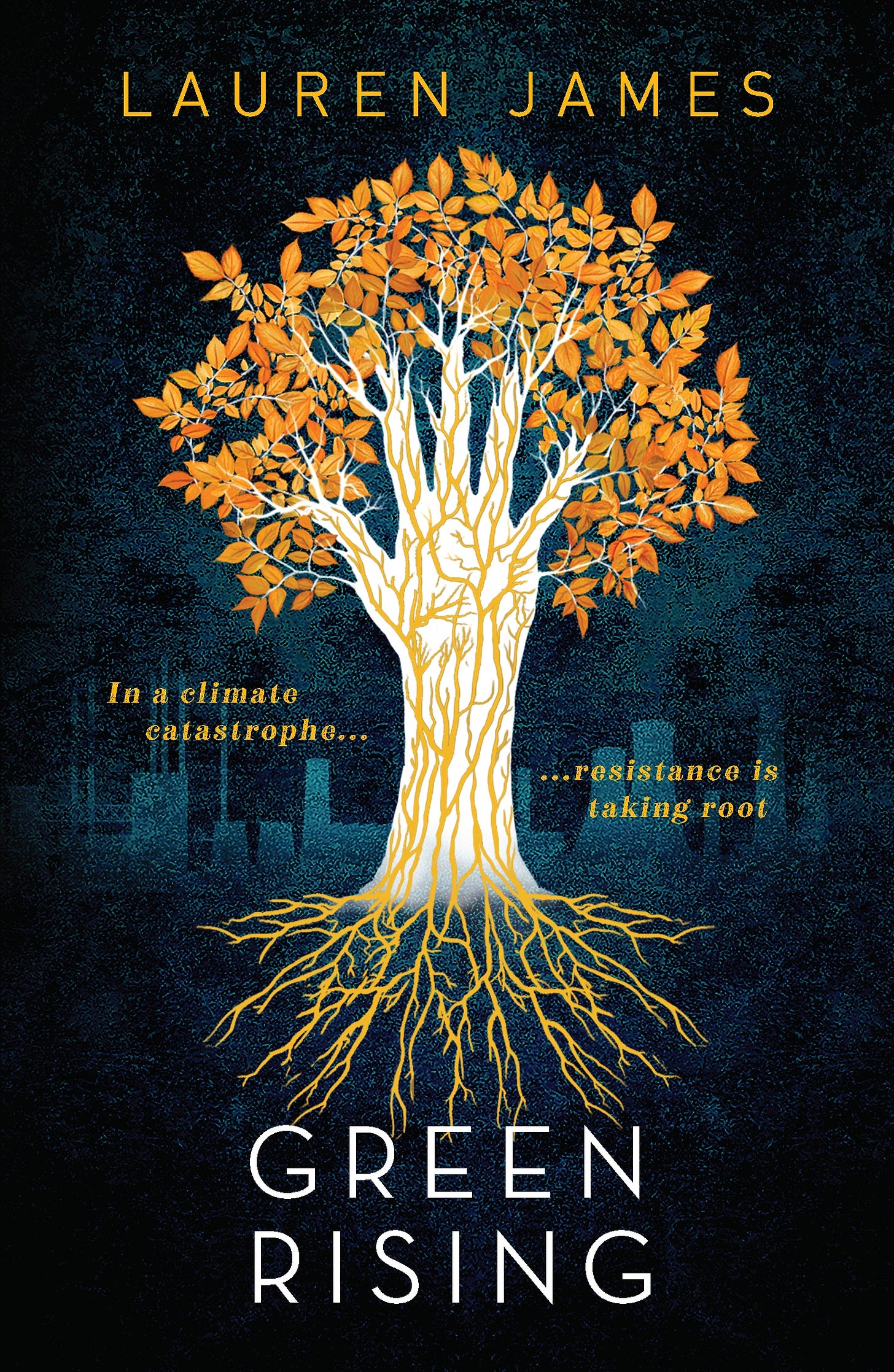Weather as Antagonist in Climate Fiction
by Sim Kern, plus Rachel Griffin discusses her YA fantasy The Nature of Witches
It’s been raining all week here in Houston, which is to say, I haven’t been sleeping. For most of my life, I loved the sound of a thunderstorm lulling me to sleep. But after surviving more floods, tropical storms, and hurricanes than I can count on both hands, the sound of thunder now triggers anxiety. I wake in the middle of the night to check the back door, feeling the tiles in the dark with my bare feet to make sure that water isn’t slipping inside. If the rain is hammering the roof, I’ll crack the front door and peek out at the bayou, two blocks away, to make sure it hasn’t escaped its banks.
Houston is one of many Gulf Coast cities already traumatized by climate-changed weather. For me, climate change feels viscerally real, as each summer stretches longer, breaking record after record for killing heat. Hurricanes spin up faster and stronger, so we barely get a break between tracking the storms that might just destroy our lives. For many Gulf Coast residents, climate change isn’t some future abstraction, it’s the dark water that’s already crossed our doorsteps, spilled into our homes, damaging the literal foundations of our lives.
I imagine folks out West go through similar traumas with each wildfire season.
Despite all the devastation Houstonians have already faced, our city and state leaders still largely choose to bury their heads in the sand on climate preparedness. We’re coming up on the anniversary of Hurricane Ike this summer—a narrow miss, that storm. If Ike had come ashore just a few dozen miles to the West, a 20-foot storm surge would have come up the Houston Ship Channel, crashing into the largest concentration of petrochemical industry in the country. The resulting human and environmental toll is staggering to consider. And yet thirteen years later, we have yet to build the “Ike Dike” or barrier islands that would protect Houston from a direct hit from a major hurricane. It’s also nearly four years since Hurricane Harvey, when two dams west of the city nearly failed, which would have submerged most of the city in a flooding event even more fatal than Hurricane Katrina. Repairs to those dams are yet to be completed. As the most populous Gulf Coast city, at sea level, and with no significant hurricane preparation underway, Houston exists on borrowed time, protected only by magical thinking.
For those of us who are climate realists—and stuck here, due to family, jobs, or economic circumstances—the inaction of our leaders is unbearably frustrating.
That frustration fueled my debut novella, Depart, Depart! I wanted climate-deniers near and far to share the fears that keep me wide-awake on rainy nights. I destroyed Houston in fiction, hoping that my little book might spur someone to join the fight against climate change, and maybe help save our city in the real world.
In Depart, Depart!, Hurricane Martha serves not just as a plot device, but as an antagonist. Tropical storms have names, bodies, and moods. We track their movements, obsess over their behavior, curse them, fear them, and joke at their expense, and they are very much characters in our lives.
For most of Noah’s friends, Martha is an excuse to throw a hurricane party. That’s a pretty common response among 20-somethings along the Gulf Coast. But for Noah Mishner, the approaching storm sparks an intergenerational terror, manifesting in cryptic warnings from his ancestor’s ghost. During a disaster, trauma tends to get tangled up like that.
As a trans, Jewish man, trying to survive in a basketball arena-turned-climate-shelter, Noah’s fears of the storm are quickly overtaken by his fear of his fellow Texans. As the storm dissipates, Hurricane Martha’s role as antagonist fades, and the real threat emerges—Noah’s neighbors, with all their bigotries, hatreds, and guns. Add an intensifying climate crisis, with wildfires, drought, and food shortages, and violence seems sure to follow. In a corner of the shelter, near the only gender neutral restroom, Noah and a found family of other trans folks try to forge a community that will weather this brewing crisis.
I wish that I could say that the fears that took shape in Depart, Depart! seem unrealistic now, four years after Harvey. But as this Texas legislative session comes to a close, they seem more relevant than ever. Permitless carry passed, so that guns will be more omnipresent and unregulated than ever. Thanks to the incredible efforts of trans activists (many of them children), none of the thirteen bills attacking trans people passed this session. However, criminalizing trans kids remains a top priority of the GOP, as the governor is considering a special session to continue the onslaught. Efforts to reign in petrochemical pollutants failed to get a vote, while the “right” to burn natural gas will be enshrined in law. In the name of “life,” the legislature banned abortion past six weeks, the time after which when 90% of abortions in the state occur. And yet no action was taken on climate change, which threatens the very continuation of life on earth.
This agenda doesn’t reflect the priorities of most Texans, only of a powerful, vocal minority. For example, only 26% of Texans think permitless gun carry is a good idea, and yet this law will now endanger all our lives. Outrageously gerrymandered districts and racist voting laws disenfranchise millions of Texas voters, particularly in Black and Latine communities. And a new, sweeping election bill is set to make it even harder to vote for the millions of Texans who support things like LGBTQ+ rights, climate action, and sensible gun laws.
So don’t get me wrong, I love Houstonians. Like the climate refugees in Depart, Depart!, we’re all just trying to survive, keep our families happy, and stay above floodwaters. We’re a resilient bunch, as you have to be, living on the Gulf Coast in the 2020’s. Hurricanes can be terrifying antagonists. But by a longshot, it’s my neighbors—the ones who worship bigotry, guns, and petrochemicals—who scare me the most.
You can learn more about Depart, Depart! here.
Sim Kern is a speculative fiction writer, exploring intersections of climate change, queerness, and social justice. Their quiet horror novella Depart, Depart! was released in September 2020 from Stelliform Press. Sim also has recently published short stories in Metaphorosis, The Colored Lens, and Wizards in Space Magazine. They are represented by Mariah Nichols of the D4EO Literary Agency for their YA novel, Sand and Swarm. Sim attended Oberlin College for a B.A. in English and Creative Writing. Afterwards, they moved to Houston, where they spent ten years teaching English to middle and high schoolers. Following the birth of their kid, they began pursuing a career in writing. They live near the bayou with their husband, toddler, and two very good dogs.
New Release
Rachel Griffin talks about her debut novel, out now with Sourcefire Books.
Tell us about your new book.
The Nature of Witches is a young adult contemporary fantasy set in a world where witches have long maintained the climate but are starting to lose control. It follows Clara Densmore, an Everwitch whose rare magic is tied to every season, and she is the only witch powerful enough to stabilize the collapsing atmosphere. But her magic is able to seek out and target the people she cares for most, and when she falls in love with a spring witch, she must choose between her magic that the world desperately needs and the boy that she’s come to love.
How does climate change play into the plot?
The world is suffering from more and more extreme weather events, which is the backdrop of this story. When I began to imagine if there really were witches who could control the climate, I realized that there would be people who used them and their magic as a resource, pushing the Earth further than it was ever intended to go. And at some point, the Earth was going to start pushing back. That set the stage for Clara’s story.
What kind of research did you do when writing it?
Most of my research revolved around learning more about weather and the atmosphere. I read books and did a ton of research online, but the best thing I did was become a certified weather spotter for the National Weather Service! I took a class they were offering at my local airport, and it was all about recognizing weather patterns and signs that extreme weather may be on the way. It was such a great way to learn about something that has fascinated me my entire life, and I wove a lot of what I learned into the magic system in The Nature of Witches.
What are some of your favourite books about climate change? (fictional or non-fiction!)
I read a lot of work that focuses on the wonder and awe of the natural world because I believe that by immersing ourselves in its magic, we become desperate to protect it. So from that end, I love the poems and essays of Mary Oliver, as well as Braiding Sweetgrass by Robin Wall Kimmerer.
I’m currently making my way through All We Can Save, which is a fantastic collection of essays from women at the forefront of the climate movement.
And finally, I haven’t read this one yet, but I’m very excited for Joan He’s recent release, a young adult sci-fi novel called The Ones We’re Meant to Find about two sisters desperately trying to find each other in a climate-ravaged future.
Can you remember when your journey with climate activism started?
I have loved weather and nature since I was a little girl, and that fascination and awe followed me well into adulthood. I didn’t learn about the climate crisis until I was an adult, but I feel like my journey started years before then, as a little girl finding sanctuary in the trees and wonder in the storms.
Why is it so important for you personally to see climate change discussed in fiction?
Simply put, this is the only home that we have, and the Earth gives us so much. By including my love for the natural world in my book, I’m hoping that it inspires readers to want to give back to the Earth and protect it.
Can you share a quote from the book that you hope will resonate with readers?
“I’ve had moments of despair and deep resentment. But then I stand outside and touch the earth, feel the magic in my fingertips, and understand that this is how it’s meant to be. The sun and stars conspired for me, and I am filled with gratitude.”
What message do you hope readers will take away from your work? What steps would you like them to take to be more involved in climate activism?
More than anything, I hope The Nature of Witches evokes a sense of awe, wonder, and gratitude for the natural world, because when we’re inspired by something, when we love something, we protect it.
I think the steps to take differ from person to person, because what works for one person may not work for another, but there are so many ways to help. I hope that readers seek out ways that work for them, because we can all help. Read. Research. Vote. Use your voice—all of it matters.
Rachel Griffin writes young adult novels inspired by the magic of the world around her. She is the author of the upcoming The Nature of Witches, releasing from Sourcebooks Fire on June 1, 2021, with a second standalone novel to follow in 2022. Born and raised in the Pacific Northwest, Rachel has a deep love of nature, from the mountains to the ocean and all the towering evergreens in between. She adores moody skies and thunderstorms, and hopes more vampires settle down in her beloved state of Washington. On her path to writing novels, Rachel graduated from Seattle University with a Bachelor of Science in diagnostic ultrasound. She worked in healthcare for five years and taught ultrasound at her alma mater before making the switch to a small startup. She has been mentoring in Pitch Wars since 2017 and now writes full-time from her home in the Seattle area. When she isn’t writing, you can find her wandering the PNW, reading by the fire, or drinking copious amounts of coffee and tea. She lives with her husband, small dog, and growing collection of houseplants.
Climate News
Chance of temporarily reaching 1.5C in warming is rising, WMO says [FT]
Goldsmiths Press Accepting Submissions for New SF Imprint
Great Science Share for Schools - resources for educators [University of Manchester]
Meet 13 Asian and Asian Diasporic Nature and Environment Writers [Sierra Club]
ExxonMobil and Chevron suffer shareholder rebellions over climate [The Guardian]
A ‘choose your own adventure’ based on Annemarie Allan’s novel ‘Breaker’
Cover reveal for Green Rising by Lauren James (league founder)








